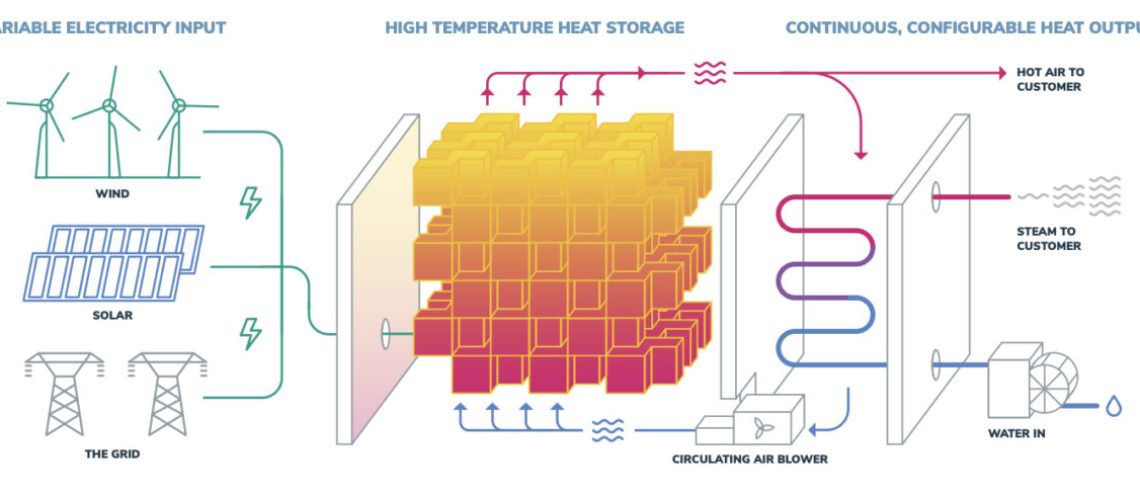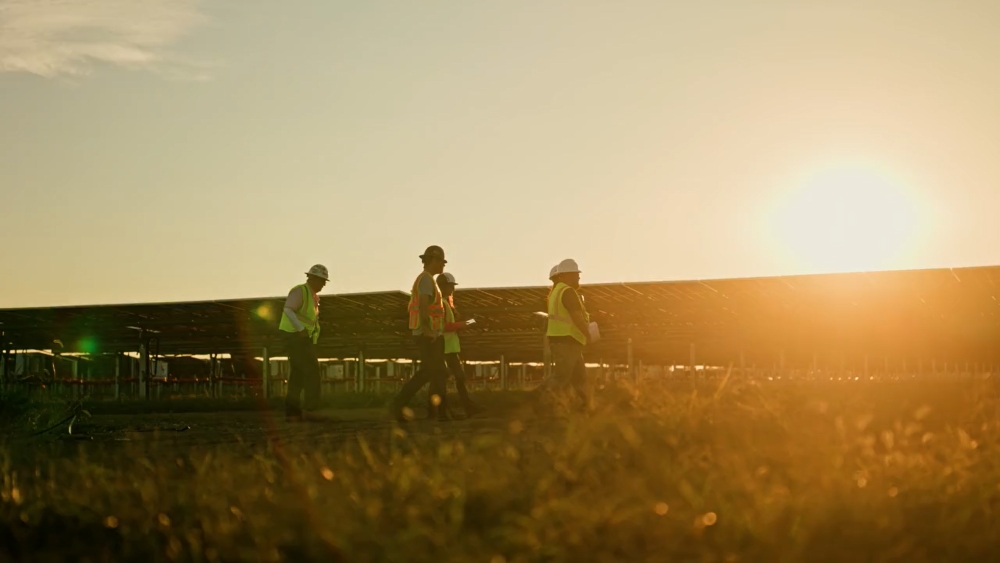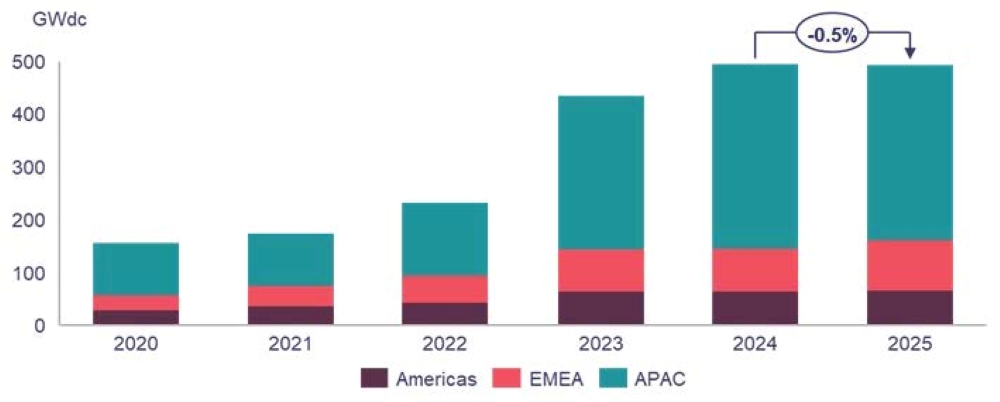Two projects that would store heat in firebricks for industrial use may receive federal funding, in part because the projects are deemed highly replicable.
The U.S. Department of Energy is negotiating with alcoholic beverage producer Diageo North America an award of up to $75 million to install firebrick heat storage systems at two Diageo sites. The systems would be provided by Rondo Energy and powered at least partly by renewable electricity, a Diageo spokesperson said.
Firebricks can be heated to high temperatures using electricity. The stored heat can be used to produce heated air for some industrial processes, or to produce steam for other industrial processes or to generate electricity for use on-site.
Rondo Energy said its “heat batteries” would produce both heat and power at Diageo sites in Shelbyville, Kentucky and Plainfield, Illinois, and begin operation by 2026 and 2028, respectively. The thermal storage systems would replace methane gas-fired heat.
A Diageo spokesperson said power for the project will include local solar resources and renewable electricity from the grid backed by renewable energy certificates.
DOE’s Office of Clean Energy Demonstrations announced the beginning of award negotiations in March, saying the projects would provide “a highly replicable blueprint” for how manufacturing facilities can integrate thermal batteries with intermittent renewable energy to achieve direct decarbonization. At that time DOE said the projects would be powered by onsite renewables.
The National Renewable Energy Laboratory (NREL) will support Diageo in its techno-economic and life-cycle analyses, Diageo said, and will validate carbon reductions at both projects.
DOE said Diageo is committed to sharing facility air and water quality monitoring results with the public to inform local communities about reductions in criteria air pollutants once the projects are operating.
Rondo Energy offers two sizes of heat batteries, according to its specification sheet. The larger system has an energy storage capacity of 300 MWh, a peak charge rate of 70 MW-ac, a maximum discharge rate of 20 MW-thermal, and minimal loss of heat over a one-day storage period. The smaller system is about one-third the size of the larger system.
Rondo Energy describes its first project, a 2 MWh system delivering industrial heat at Calgren Renewable Fuels in California, as the first electric thermal energy storage system in commercial operation, and the “world’s highest temperature, highest efficiency” commercial energy storage system.
DOE previously provided funding of $4 million for a heated sand energy storage pilot project at an NREL facility.






